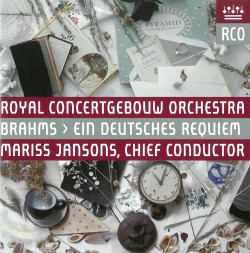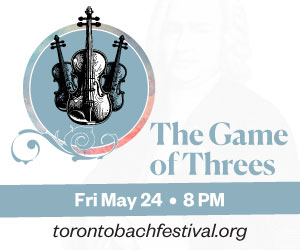 Brahms – Ein Deutsches Requiem
Brahms – Ein Deutsches Requiem
Kühmeier; Finley; Netherlands Radio Choir; Royal Concertgebouw Orchestra; Mariss Jansons
RCO Live RCO 15003
Although Requiem, a funeral mass, is most commonly associated with Mozart, (who died before finishing his own setting), most versions of Requiem were rarely written in the shadow of a musician’s impending death. True, Verdi composed his relatively late in life at 60, but he lived for another 27 years. In fact, most composers were very young when they took on this heavy subject. Berlioz, Bruckner, Cherubini, Delius, Duruflé, Dvořák, Fauré, Michael Haydn and Reger all composed either Roman Catholic or Protestant Requiems.
Ein Deutsches Requiem stands out because of its superb choral writing, incomparable soprano aria Ihr habt nun Traurigkeit and the moving baritone solo parts in the third and sixth movements. Brahms, only 23 when he started crafting the work, resumed composition after his mother’s death. Encouraged by Clara Schumann, Brahms presented a three-movement work, but this was welcomed with scorn. Only in 1867, did a six-movement work receive a triumphant reception. The work’s profile only increased when a year later he added the aforementioned solo for soprano as part number five.
It is a meditative piece, serious in its sorrow, yet lacking the transcendence of Fauré’s Requiem. The soloists become the pallbearers of this solemn mass, guiding the choral procession from the blessing of the suffering survivors to benediction of the dead. Despite being culled from the Old Testament and the Gospels, the text has been criticized for not being overtly religious. This speaks to Brahms’ humanistic, rather than religious, viewpoint. Both Ginia Kühmeier and Gerald Findley stun with their vocal performances, the latter entering a period of his life when his baritone voice moves into being defined as a bass.



